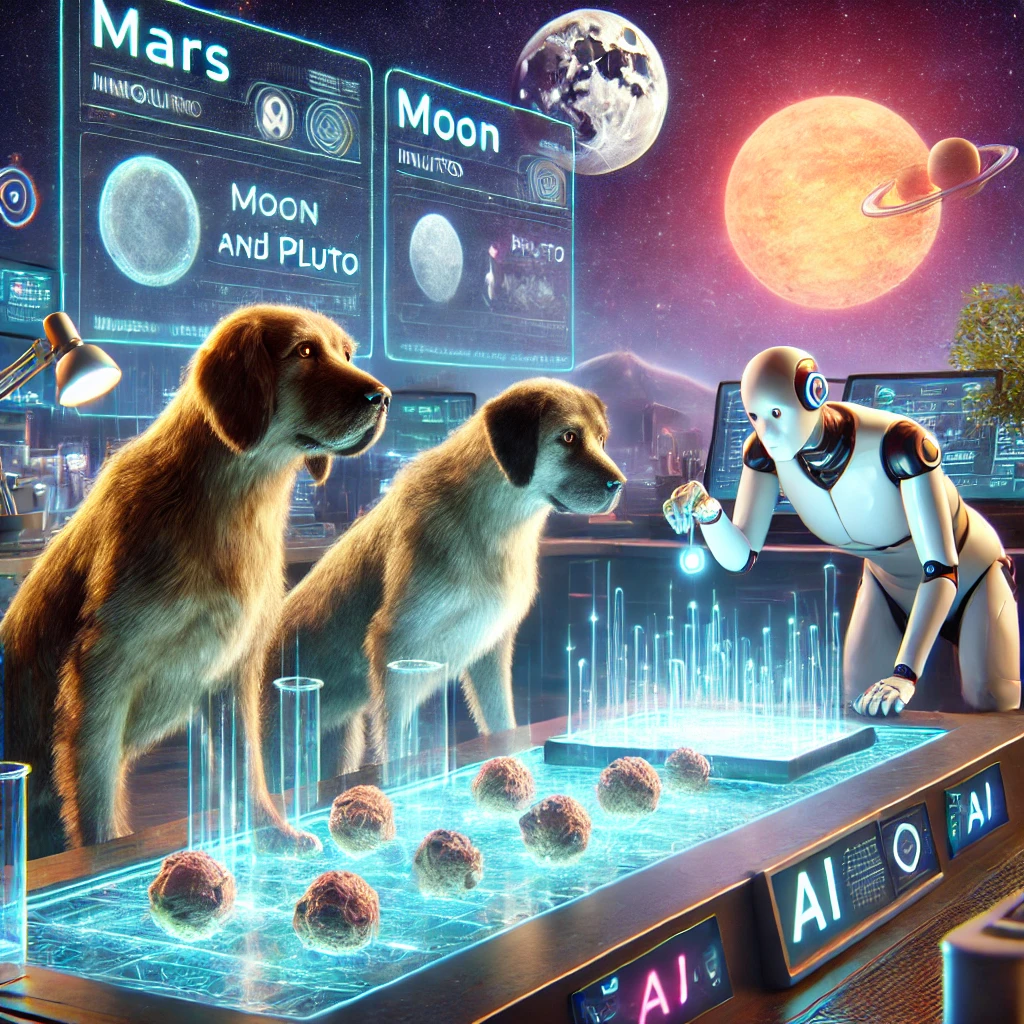In a groundbreaking breakthrough that pushes the boundaries of medical innovation, dogs and artificial intelligence (AI) are teaming up to sniff out cancer with unprecedented accuracy. A novel screening method, developed by SpotitEarly, combines the extraordinary olfactory abilities of trained dogs with the analytical power of AI to detect cancer in its early stages. This cutting-edge collaboration is giving new hope for early detection and treatment, potentially saving countless lives.
Meet the Four-Legged Detectives: Mars, Moon, and Pluto
Mars, Moon, and Pluto aren’t just your average dogs. These exceptional canines are trained to detect the faintest traces of cancer odors carried on patients’ breaths. With their keen sense of smell, they can pick up chemical changes associated with cancer that are often undetectable by humans or machines alone. It’s no wonder their cancer-sniffing skills are described as “out of this world.”
A High-Tech Partnership
The experimental method utilizes AI to analyze data gathered by the dogs, creating a powerful synergy that amplifies diagnostic accuracy. In a recent study published on November 15 in Scientific Reports, this canine-AI duo achieved an astounding 94 percent success rate in detecting four types of cancer. This includes common and deadly cancers such as lung, breast, prostate, and colon cancers. The pairing of biological intuition with technological precision makes this system highly sensitive and reliable.
Why This Matters
Early detection is a critical factor in cancer survival rates. Many cancers are asymptomatic in their early stages, making them difficult to diagnose until they have progressed significantly. SpotitEarly’s innovative method could revolutionize the screening process by providing a non-invasive, rapid, and highly accurate test. Patients simply breathe into a device, and the sample is analyzed by the dog-AI team, offering results that could guide timely and life-saving interventions.
Challenges and Future Directions
While the results are promising, the integration of this technology into mainstream healthcare faces several challenges. Scaling up the training of dogs, standardizing the AI algorithms, and ensuring widespread accessibility are some of the hurdles to overcome. However, with continued research and investment, the potential for this method to become a staple in medical diagnostics is immense.
Beyond Cancer
The implications of this technology extend beyond cancer detection. Researchers are exploring its application in identifying other diseases with distinct odor profiles, such as Parkinson’s, diabetes, and even certain viral infections. The success of Mars, Moon, and Pluto could pave the way for a new era in disease detection, where the harmony between nature and technology becomes the cornerstone of healthcare innovation.
In the fight against cancer, the partnership between dogs and AI proves that even the most unexpected collaborations can yield extraordinary results. Mars, Moon, and Pluto, along with their AI counterparts, are blazing a trail that could change the way we approach disease detection forever.


